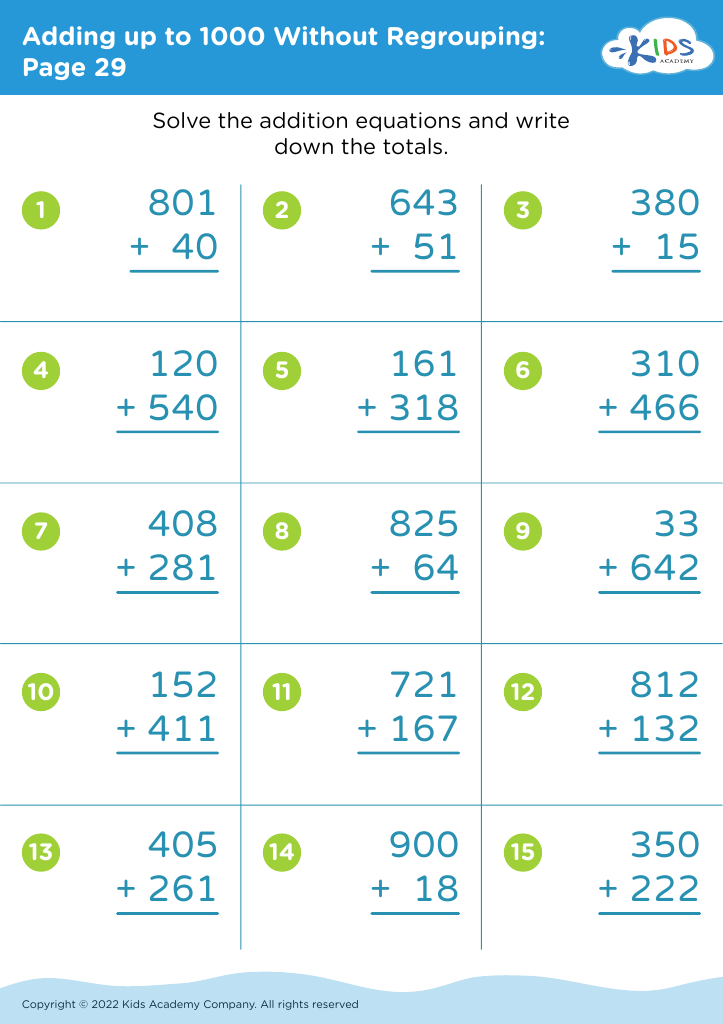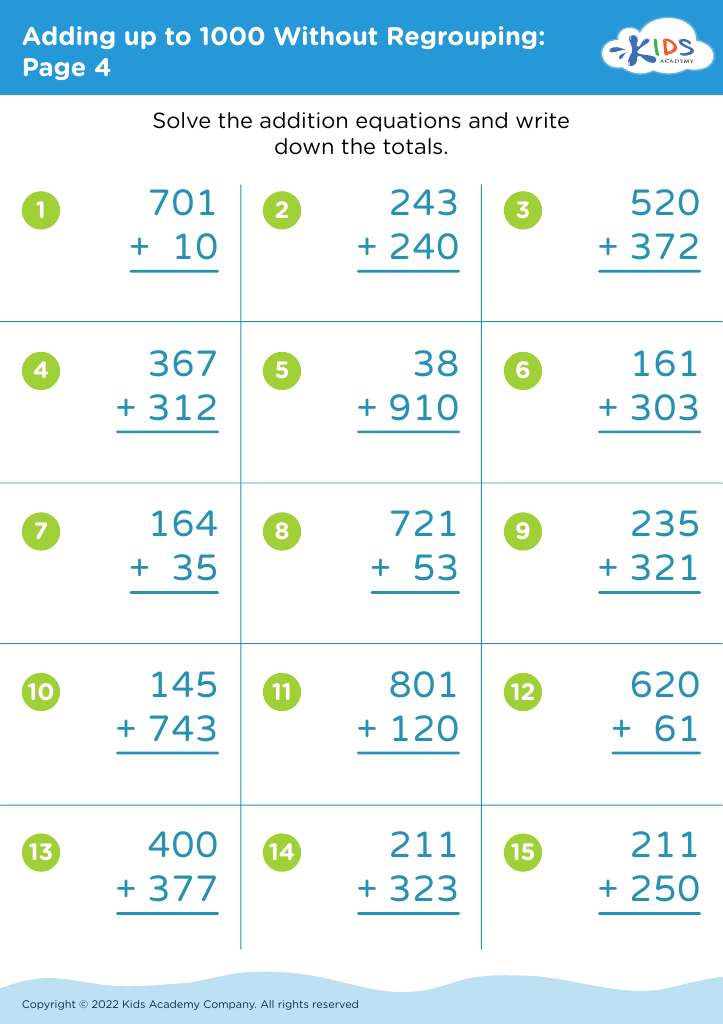Reading comprehension Adding up to 1000 Without Regrouping Worksheets for Ages 6-8
4 filtered results
-
From - To
Discover our engaging "Reading Comprehension Adding Up to 1000 Without Regrouping Worksheets," specially designed for children aged 6-8. These interactive worksheets seamlessly blend math skills with reading comprehension, ensuring your child not only practices addition but also understands the context of word problems. Each worksheet features age-appropriate scenarios that encourage critical thinking and enhance reading skills.
Perfect for classroom use or home learning, these resources make math fun and accessible. Foster your child's confidence in both math and reading with our thoughtfully crafted materials. Start their educational journey today and watch them excel in both comprehension and mathematical skills!
Parents and teachers should prioritize reading comprehension and addition concepts, like adding up to 1000 without regrouping, for children aged 6-8 because these foundational skills are critical for future academic success. Reading comprehension enables children to understand and engage with texts, fostering a love for learning and enhancing their vocabulary and critical thinking. As they start to explore different genres, being able to grasp main ideas and summarize content helps them develop analytical skills necessary for advanced learning.
Similarly, mastering basic addition skills lays the groundwork for more complex math concepts. Addition without regrouping is particularly important at this developmental stage, as children learn to manipulate numbers confidently and efficiently. This skill promotes number sense, which is essential for problem-solving and advanced arithmetic.
By intertwining reading and math proficiency, educators and parents can cultivate well-rounded learners who excel in multiple disciplines. These skills, when taught cohesively, also help in building concentration and discipline—an important aspect of early education. Ultimately, fostering strong reading and math skills in young learners sets the stage for their academic journey and equips them with basic abilities that persist throughout their schooling and everyday life. Thus, investing time and resources into these areas is essential for holistic childhood development.














